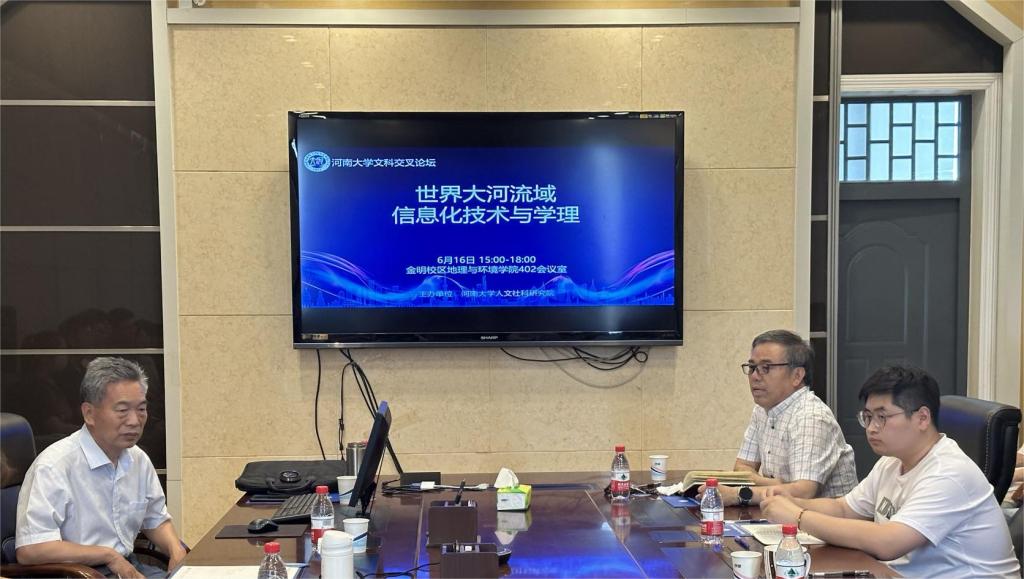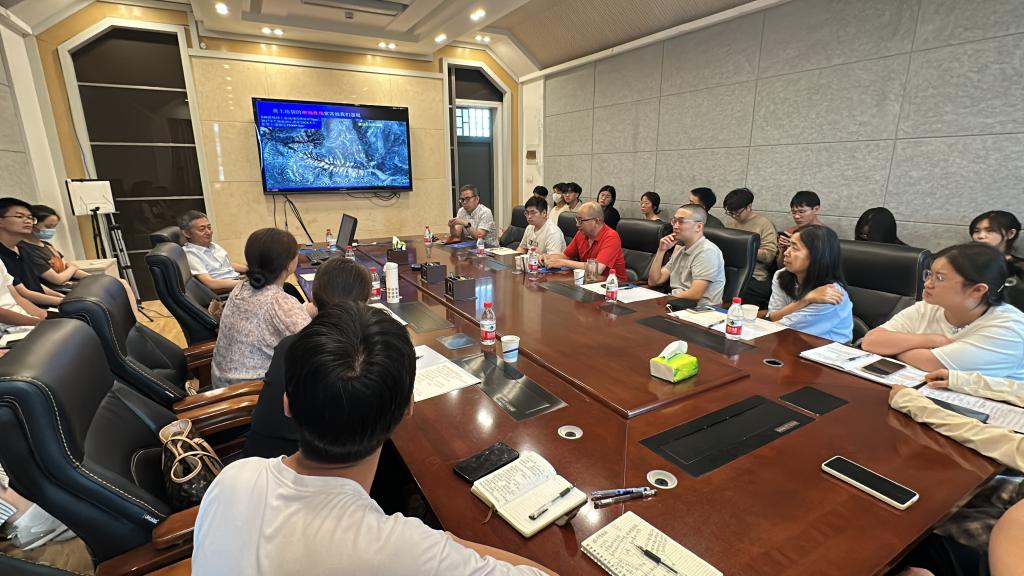On the afternoon of June 16, the HENU Interdisciplinary Liberal Arts Forum, themed “Information Technology and Science of the World’s Major River Basins”, sponsored by the Social Sciences Department of Henan University, was successfully held at the College of Geography and Environmental Science. The forum was presided over by Qiumin Zhai, associate dean of the College of Geography and Environmental Science.
Zhancang Zhang, former president of Henan Academy of Social Sciences, and Xuejian Shi, chief engineer of the Yellow River Institute of Hydraulic Research, gave keynote speeches. The forum also welcomed the attendance of Youmin Chen, Guifang Liu, Shiyan Zhai, Beiming Cai from the College of Geography and Environmental Science, Leying Wu from the Key Research Institute of Yellow River Civilization and Sustainable Development, and Linjie Tian from the School of Civil and Architectural Engineering, as well as graduate and undergraduate students of related majors.

At the meeting, the high-quality development of the Yellow River Basin was discussed in depth. One of the critical issue discussed was the uneven distribution of water resources between the north and south: the north has a large population and is an important agricultural production area, which needs to be adapted to water conditions. Zhancang Zhang talked about interdisciplinary development and emphasized the importance of interdisciplinary development. He also pointed out that while the evolution of the geographical environment of the Yellow River Basin is an necessary element in regional development, we should not forget taking into account the Yellow River culture and excellent traditional culture, especially the influence and role of the “filial piety” culture in traditional Chinese culture. “The high-quality development of the Yellow River Basin requires us to attach importance to traditional culture and emphasize that excellent traditional culture needs to be inherited, learned, and reflected on,” said Zhang. According to Zhang, more discussions are needed around the construction of civilization in the Yellow River Basin.

Xuejian Shi proposed that since most of the Yellow River Basin is located in arid and semi-arid areas, there are issues such as fragile ecological environment and uneven spatial distribution of water resources. The in-depth discussions on the ecological issues such as water and sediment management, gravity erosion and latent erosion of loess landforms in the Yellow River Basin were then carried out. Out of the discussion, Xuejian Shi summarized the current governance measures and effectiveness proposed for the Yellow River Basin, and elaborated the issues that the Yellow River Basin still needs to face, such as water resource shortage and high pressure on ecological environment protection.
In the discussion on information technology and theory, Zhancang Zhang emphasized the use of multidisciplinary technical means of big data and theoretical intersection of regional economic geography, ecology, and urban and rural planning in order to better support the national strategy of ecological protection and high-quality development of the Yellow River Basin and achieve intelligent management. Xuejian Shi emphasized in-depth investigations and the use of multiple detection methods to scientifically and accurately evaluate the effectiveness of sediment control and social benefits in terms of the governance effectiveness of the Loess Plateau. In particular, he proposed the role and perspective of actual monitoring, observation, and data acquisition to support ecological protection information decision-making. During the discussion, teachers and students conducted beneficial discussions on policies, technologies, and professional theoretical support related to ecological protection informatization. They all hoped to strengthen communication, gather consensus, and explore relevant issues in the informatization of basin ecological protection, and serve national strategies and sustainable development.
The HENU Interdisciplinary Liberal Arts Forum involves multi-disciplinary knowledge such as geography, ecology, management, and environmental science. It has played a positive role in promoting the ecological protection and high-quality development of the Yellow River Basin and the ecological protection of the world’s major river basins, and has built a high-level and interdisciplinary academic exchange platform for teachers and students of Henan University.
Resource: The College of Geography and Environmental Science

 News /
Content
News /
Content


